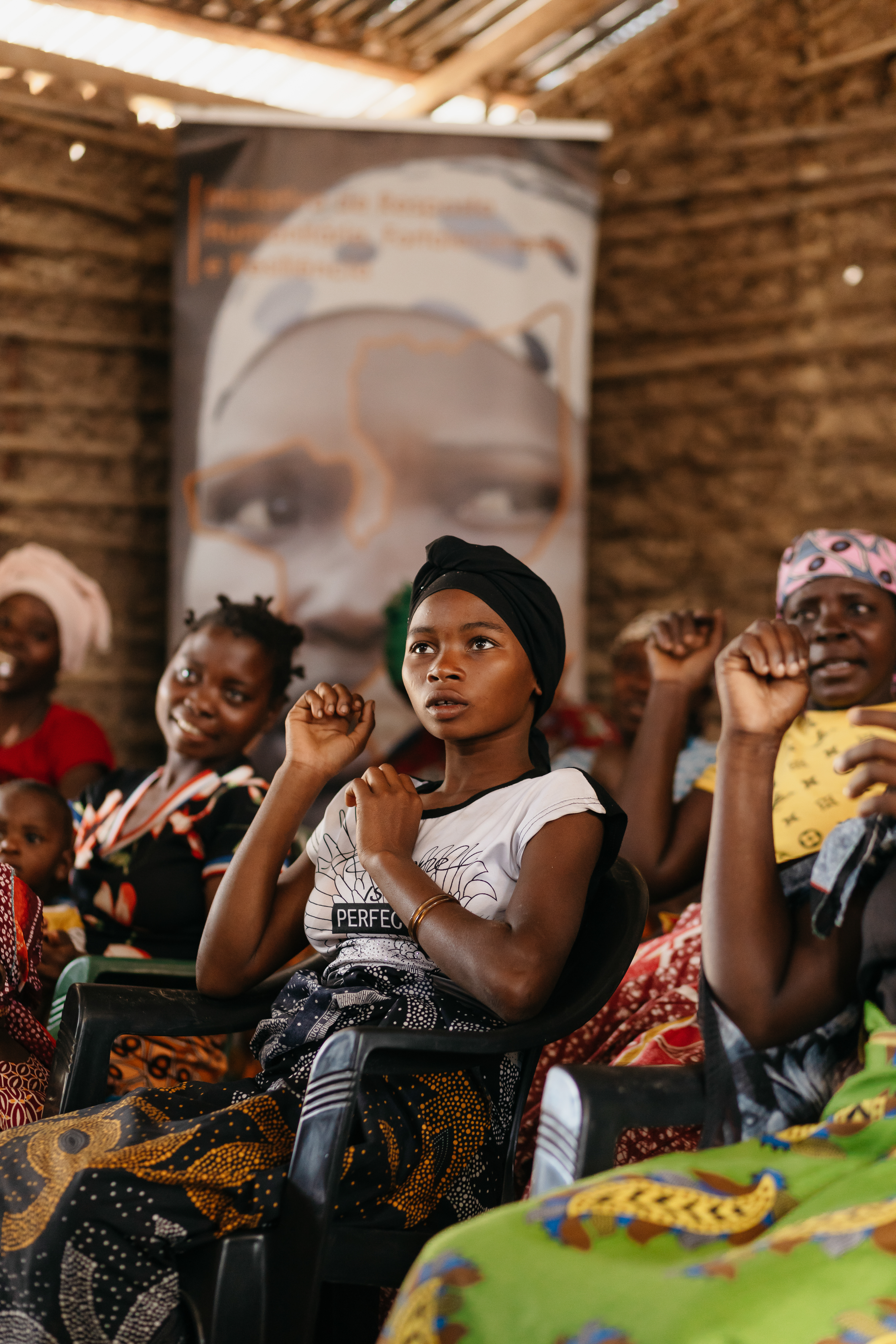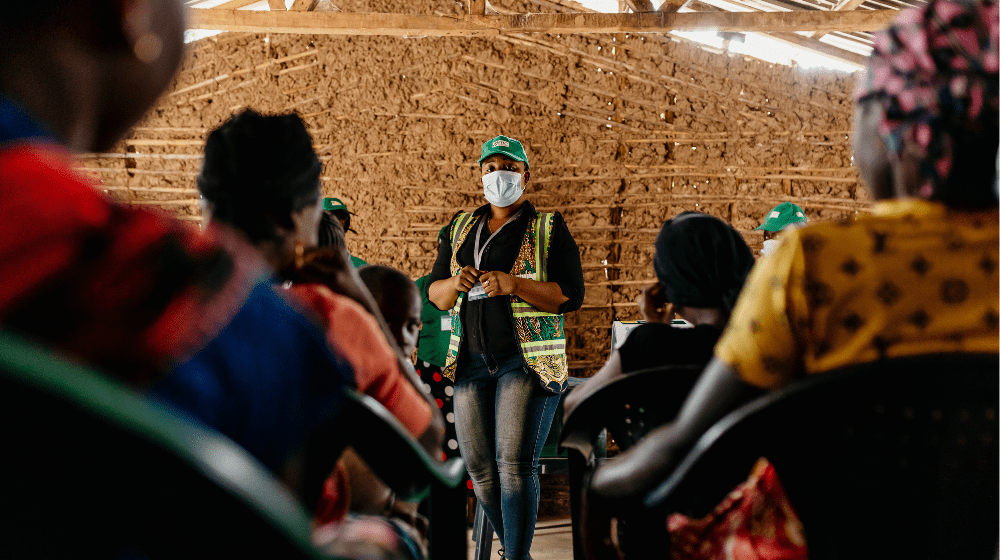METUGE, CABO DELGADO: Lersina, an activist with implementing partner, FDC, tirelessly dedicates her time and efforts to raising awareness on gender-based violence. “I am happy to do this work, and to be a part of bringing awareness on early and forced marriage, early pregnancy and sexual violence,” she says.
In the same breath, she expresses her sadness that these harmful practices still happen, even though information and services are made available:
“I am always talking about this, but I still see it happening. Some parents accept their young girls to marry because of poverty.”
Lersina is one of the dedicated and impassioned activists educating women and girls in UNFPA supported women-friendly spaces throughout Cabo Delgado. Commonly used as a source of safety and refuge in humanitarian situations, these women-friendly spaces, many of which are housed in resettlement areas, support the thousands of women and girls impacted by the ongoing violence in the north of Mozambique. Current estimates indicate that nearly one million people are internally displaced across the north of the country, 80% of whom are women and children (OCHA, June 2022).

With funding from the Governments of Canada, Japan, Norway and the United Nations Central Emergency Response Fund (UN CERF), women-friendly spaces throughout Cabo Delgado support young women like Maria (17) who lives in a resettlement area, and has since learned to sew, making reusable skirts and sanitary pads to earn a small income for herself and her family.
Maria notes the importance of having a safe space to speak about gender-based violence, an issue playing a heavy toll on the country where one in four women have experienced physical and sexual violence.
Even before the conflict began, the context for women, girls and youth in the north painted a worrying picture, with high rates of teenage pregnancy and child marriage, above average HIV prevalence rates, and low institutional delivery rates. Some 60% of girls in Cabo Delgado, Nampula and Niassa, for example, will marry before the age of 18 (IMASIDA 2015), while significant numbers of girls will give birth before the same age, approximately 40% in Cabo Delgado, 41% in Niassa and 51% in Nampula (CECAP).
“I knew a 14-year-old girl who began attending our women and girl friendly space. After becoming pregnant, she gave birth early, at six months. She told me her boyfriend wanted to engage in sexual activity just one month after her ceaseran operation, even though she had not properly healed.Given the seriousness of the situation, I started speaking to him about some of the topics we discussed at the space,” Lersina shares.
These lived realities has increasingly worsened as violence and insecurity have strained health and protection systems in the north and the continuity of - and timely access to - life-saving sexual and reproductive health and gender-based violence prevention and response services for women, girls and youth.
In response, UNFPA focuses much of its work on preventing such violence and harmful practices, mitigating its consequences, supporting survivors, as well as leading the coordination of response organizations. Included in this work is also engaging men and boys, who play a vital role in strengthening and ensuring gender equality and the empowerment of women and girls in the country.
While many of the women and girls attending the safe spaces come away with newfound knowledge and information, others join to share their experiences in the hopes of helping others.
In times of crisis and conflict, and for young women, like Maria, these spaces, with generous support from the Governments of Canada, Japan, Norway and the United Nations Central Emergency Response Fund (UN CERF) serve as a vital life-line for learning, healing, support, and community, supported by unsung heroes committed to making a difference, like Lersina.


